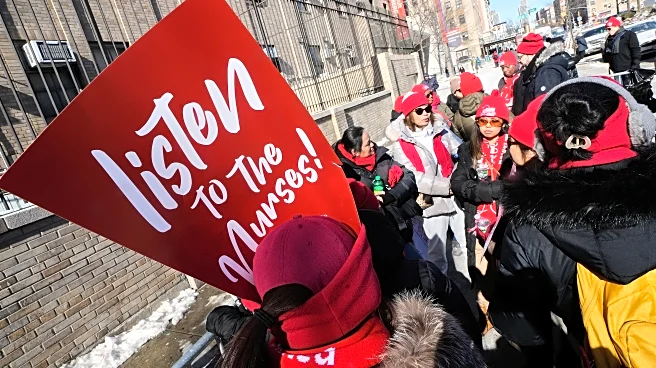What's Happening?
Two North Korean soldiers, captured by Ukrainian defense forces in Russia's Kursk Oblast, have requested to be transferred to South Korea. The soldiers, who were captured in January, reportedly attempted self-harm and expressed a desire to relocate to South Korea during
a documentary interview on October 28. Jang Se Yul, a North Korean defector and head of an organization supporting defectors, relayed that the prisoners asked for various personal items and showed signs of psychological instability. South Korea, under its constitution, considers all Koreans as citizens, including those from North Korea, and has communicated its willingness to accept the prisoners if their intentions are confirmed.
Why It's Important?
This development underscores the complex geopolitical dynamics involving North Korea, Ukraine, Russia, and South Korea. The situation highlights the humanitarian and diplomatic challenges faced by South Korea in dealing with North Korean defectors. The potential transfer of these POWs could strain or influence diplomatic relations between the involved countries, particularly in the context of North Korea's international isolation and the ongoing conflict in Ukraine. South Korea's readiness to accept the POWs reflects its constitutional commitment to all Koreans, which could have broader implications for its foreign policy and humanitarian stance.
What's Next?
If the intentions of the North Korean POWs are confirmed, South Korea will likely proceed with their transfer. This could prompt reactions from North Korea, which may view the acceptance of its soldiers by South Korea as a provocative act. Additionally, the release of the documentary interview could further influence public opinion and diplomatic discussions. The situation may also lead to increased dialogue between South Korea and Ukraine regarding the handling of North Korean defectors and POWs.
Beyond the Headlines
The psychological state of the POWs and their request for transfer highlight the human rights issues faced by North Korean soldiers and defectors. The incident may draw attention to the broader plight of North Korean defectors and the challenges they face in seeking asylum. It also raises questions about the treatment of POWs and the responsibilities of countries involved in conflicts to ensure their well-being.
















